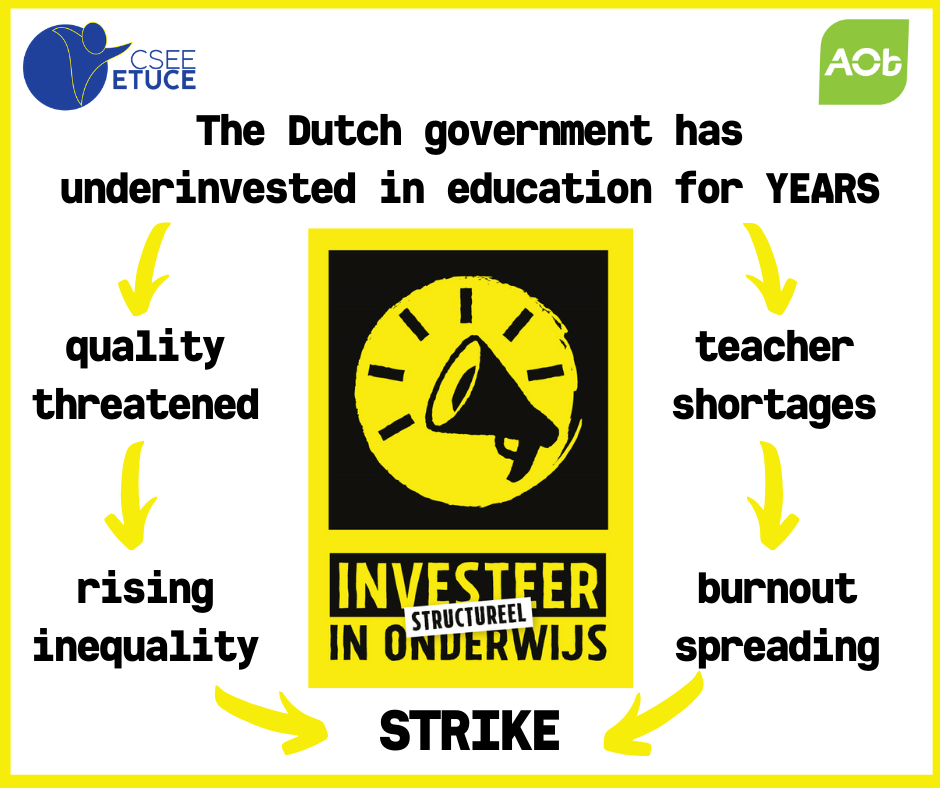Netherlands : Quality crisis and teacher shortage force Aob to launch fresh round of strikes as government fails to offer long-term funding solution
Publié:
ETUCE sends solidarity to teachers and other education personnel in the Netherlands striking today and tomorrow to demand a sustainable funding increase for the sector.

The Dutch government has ignored the warning signs for many years, but it is clear that the Netherlands’ education system in crisis. On the one hand, data show that the quality of education is falling and inequalities are rising. On the other hand, teachers and other education personnel are leaving the profession and a shortage of staff is leading to burnout among those who remain. Education trade unions have made it clear many times that these problems largely stem from the fact that education in the Netherlands is structurally underfunded.
In November 2019, ETUCE member organisation Aob was left with no choice but to call a strike. Indeed, the government did make a move by offering € 460 million to the education sector. However, education personnel and their unions were deeply disappointed to learn that this was only a one-time boost. Now Aob and its members are forced to strike once again, with the walk-out of 30-31 January showing education staff’s determination to win the structural funding increase the sector desperately needs. More than 4100 schools are closed, with actions across the country.
“We will take long-term action until the government commits to long-term investments in education,” said AOb board member Kim van Strien. The AOb, alongside other unions and organisations, has announced that this two-day strike marks the beginning of a durable campaign.
A system in crisis: the impact of structural underfunding on education in the Netherlands

“I don’t know what to say anymore,” says AOb President Eugenie Stolk. “There is a disaster of national proportions taking place. We will soon see a complete generation of pupils entering secondary education that never had the primary education they should have enjoyed by right. We will see the harsh consequences of this in further education and in society.”
- In 2020, 55000 pupils in primary education are in without a teacher. If nothing changes, this will rise to almost 24000 by 2028. The shortages have the biggest effect on the most vulnerable.
- In secondary schools classes are overcrowded, teachers in some subjects are lacking, and austerity measures lead to a deterioration in their learning environment.
- 27% of secondary school teachers are suffering from burnout, the highest burnout rate of all professions in the country. Teachers teach many more hours than their colleagues in other (OECD) countries. Salaries continue to lag behind the private sector, inciting many teachers to pursue a different career.
- The few young people that still choose a teaching career may start with enthusiasm, but 31% of them leave the profession with 5 years. In the next 10 years 25% of current will retire, but the number of students starting teachers training is steadily declining.
- Research has revealed many ‘hidden vacancies’. Schools give classes to unqualified teachers, school leaders, remedial teachers and education support personnel. In The Hague, for example, researchers found 41 official vacancies but 332 ‘hidden’ ones.